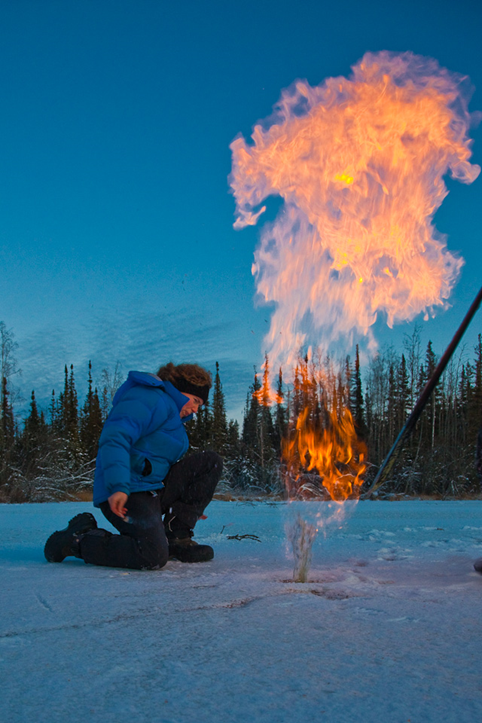Permafrost thaw and methane release in the Arctic
Katey Walter Anthony is an Aquatic Ecologist and Professor at the University of Alaska Fairbanks
Abstract: Permafrost thaw beneath Arctic lakes and other thermokarst (thaw) features leads to large emissions of methane, a potent greenhouse gas to the atmosphere. In turn, methane contributes to global climate warming, which leads to more permafrost thaw in a positive feedback cycle. This talk will uncover natural sources of methane in the Arctic, which come from both the organic matter decay activity of microoganisms in lake bottoms and from geologic sources deep within the Earth. This talk will also present mechanisms of carbon sequestration by the same permafrost thaw features, a natural process that mitigates greenhouse gas losses, and over the long term can lead to net climate cooling. Using field work and novel remote sensing methods, I will consider the important balance between positive and negative feedbacks in fate of permafrost thaw and climate change in the past (since the last deglaciation), present, and future (until year 2100).

About: Katey Walter Anthony is an Aquatic Ecologist and Professor at the University of Alaska Fairbanks. Her research focuses on methane emissions from Arctic lakes, the degradation of permafrost, and its feedbacks to global climate processes through the carbon cycle. She has over 25 years’ experience conducting field work in Alaska and Russia, is a science team member of the National Aeronautics and Space Administration Arctic-Boreal Vulnerability Experiment, and a member of the Permafrost Carbon Network. She received the National Wildlife Federation Award in 2009, National Geographic Society Early Explorer’s Award in 2009, Mount Holyoke College Mary Lyon Award in 2010, WINGS WorldQuest Award in 2011, and the University of Alaska Usibelli Distinguished Research Award in 2019. Anthony received a B.A. in geology from Mount Holyoke College, an M.S. in restoration ecology from the University of California, Davis, and a Ph.D. in aquatic biology from the University of Alaska Fairbanks. She previously served on the National Academies of Sciences, Engineering, and Medicine’s Polar Research Board.
